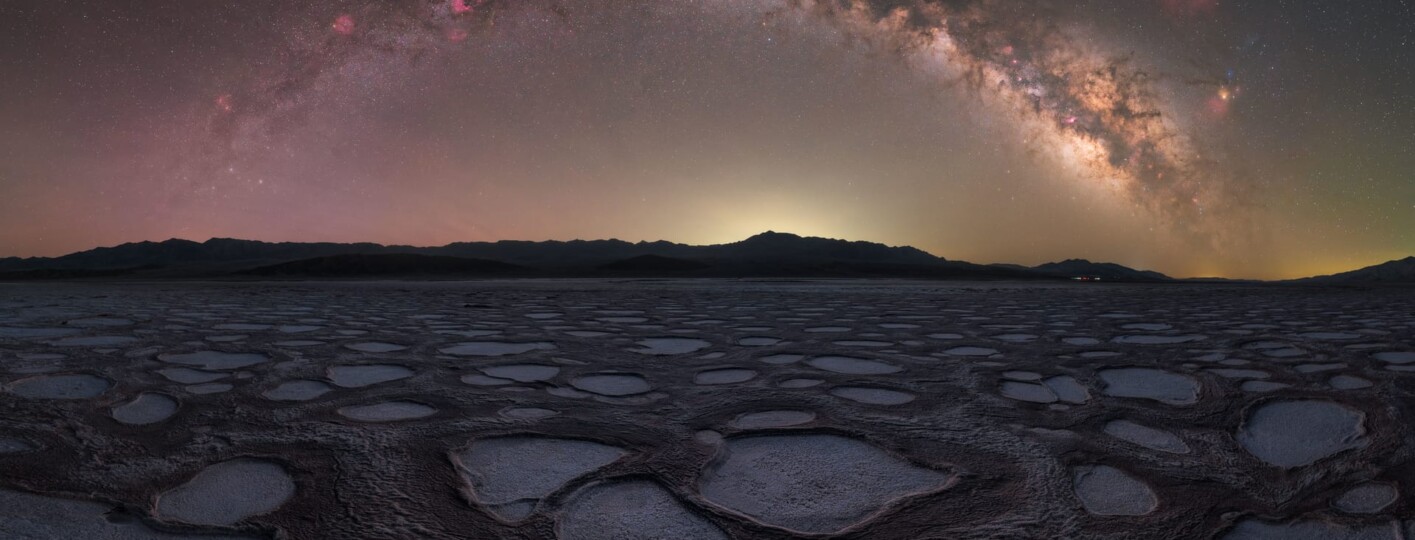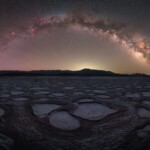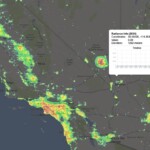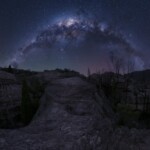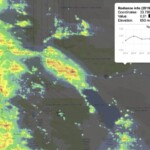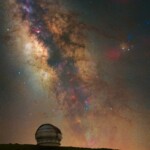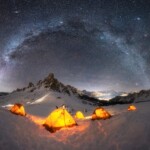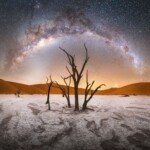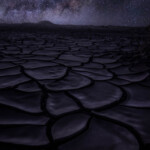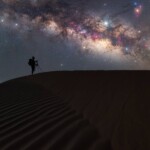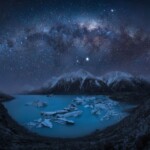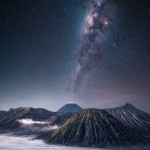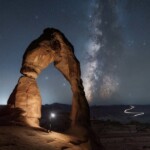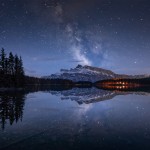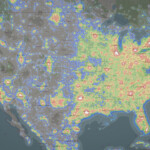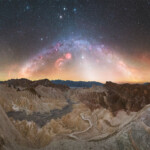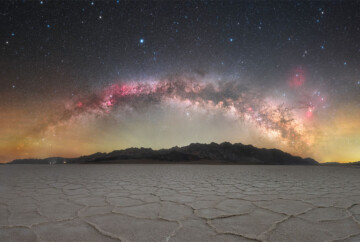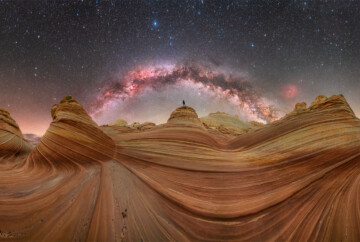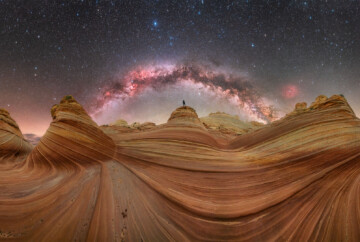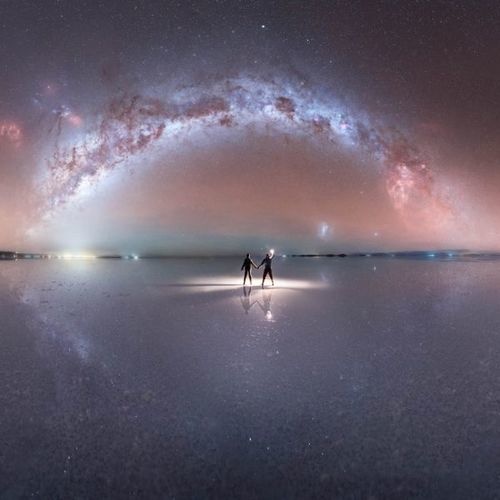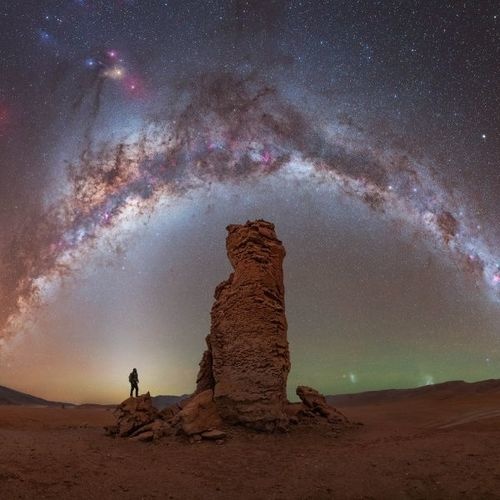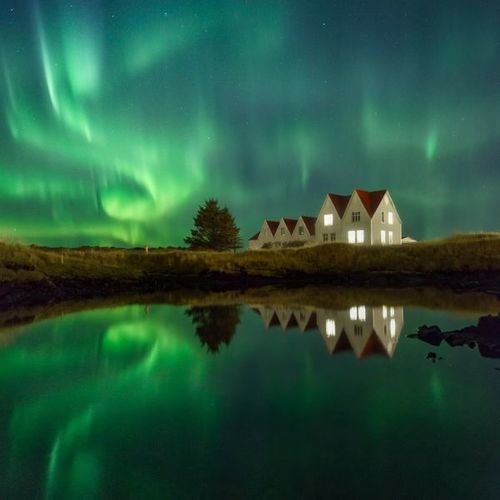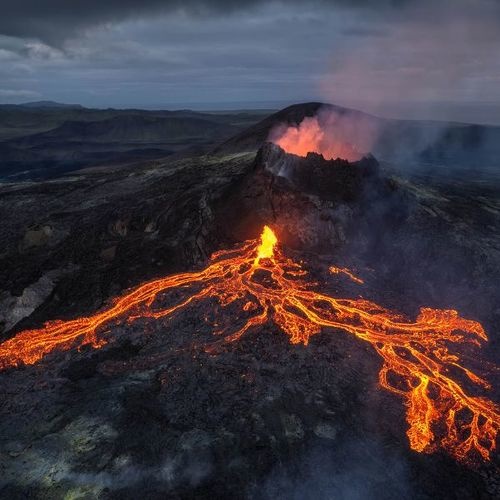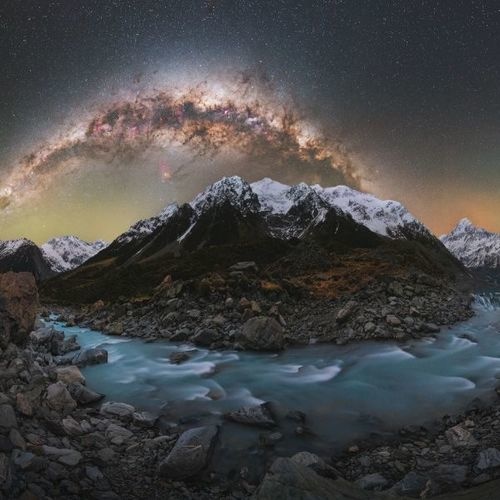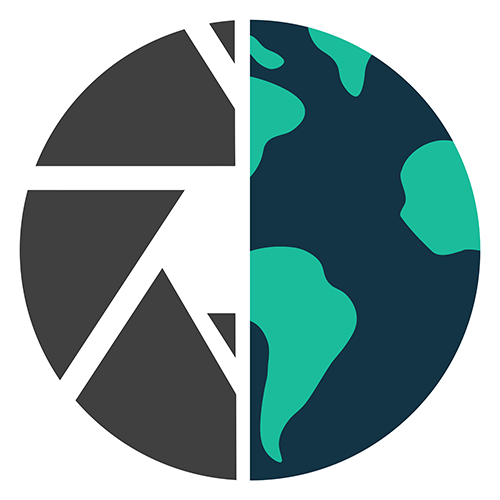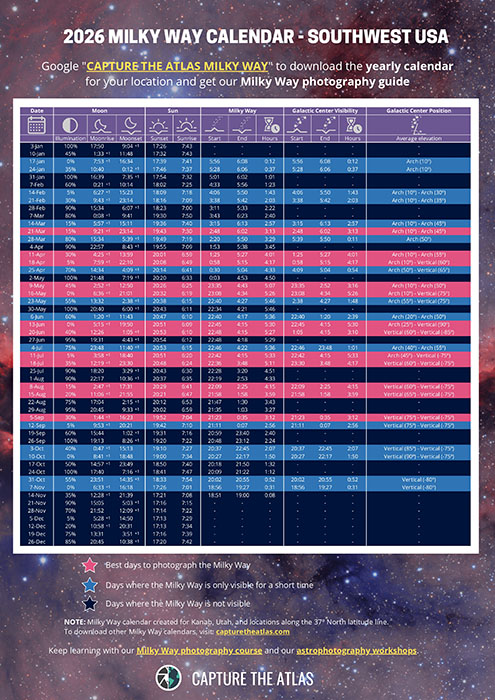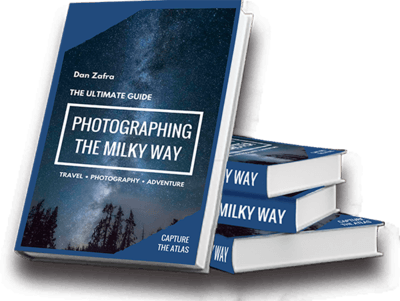Viewing our galaxy from Earth is one of the most mesmerizing experiences, but where can you see the Milky Way?
It doesn’t matter if your goal is to photograph the Milky Way or if you simply want to enjoy a nice view of our galaxy. To maximize your chances, you have to find the best places to see the Milky Way.
To do so, you should consider two things: the best time to see the Milky Way and the best places where you can see the Milky Way in areas away from light pollution and preferably at high elevations.
Below, you’ll find a list of the best places on Earth to see the Milky Way at night. Also, if you’re wondering: where can I see the Milky Way tonight? Don’t worry, I’ll also provide the top tools and tips to find the best places to see the Milky Way near you.
GET THE CALENDAR WITH THE BEST DATES TO PHOTOGRAPH THE MILKY WAY IN 2026
You'll also receive our PDF guide to photographing the Milky Way!
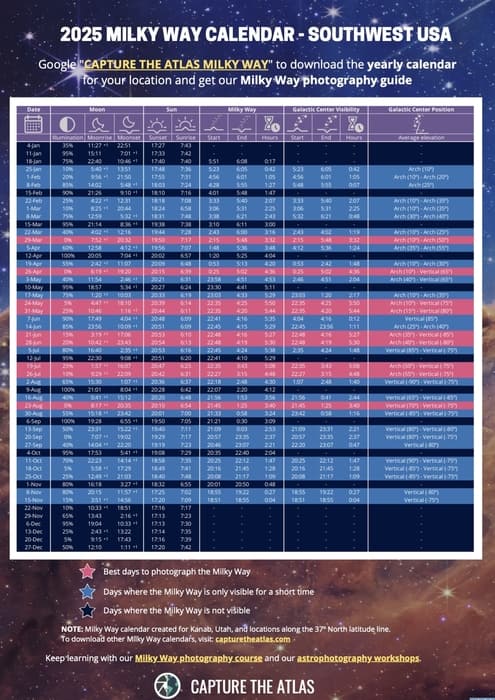
In summary, these are the top 10 places to see the Milky Way:
- Arches, United States
- Banff, Canada
- La Palma, Spain
- The Dolomites, Italy
- The Sahara desert, Tunisia
- Mount Bromo, Indonesia
- Namib Desert, Namibia
- Atacama Desert, Chile
- Wollemi, Australia
- Tasman Glacier, New Zealand
After this, I’ll also show you how to find the best places to see the Milky Way!
1. Arches National Park, USA
Arches National Park is one of the best places to see the Milky Way in the United States.
Located in Utah, this high desert landscape on the Colorado Plateau offers two of the key factors you need to see the Milky Way; it’s away from the main sources of light pollution, and it’s located at a very high elevation (5,000+ ft).
The geological formations at Arches make you feel like you’re on another planet at night, and for many reasons, this is, in my opinion, the best place to photograph the Milky Way in the US.
The best locations to shoot the Milky Way in Arches NP are Delicate Arch, Turret Arch, and Balanced Rock.
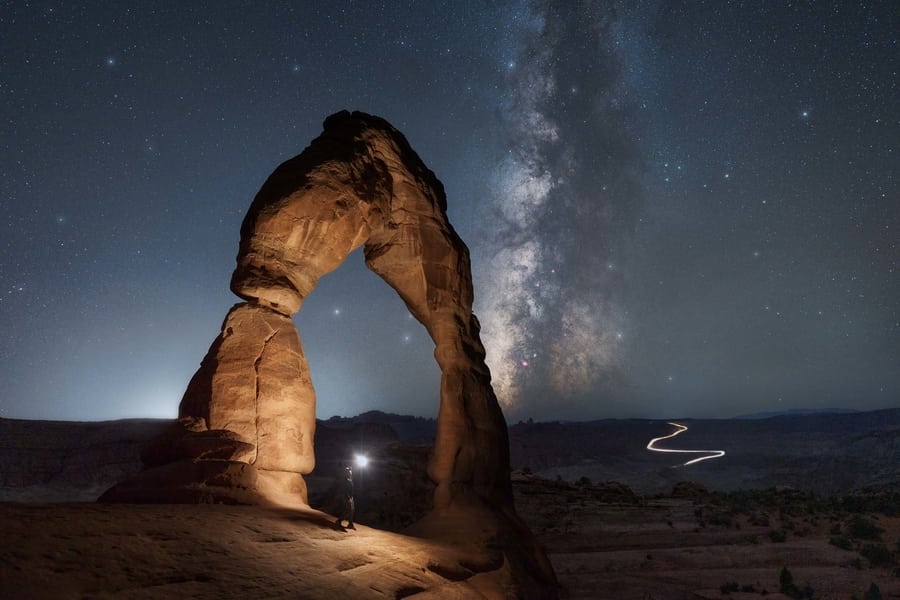
1. Arches National Park, Utah – Dan Zafra
2. Banff, Canada
Banff National Park is, without a doubt, one of the best places to see the Milky Way in Canada.
Located in the Canadian Rockies, this huge area, formed by other National Parks like Kootenay and Jasper, offers some of the best places where you can see the Milky Way in North America.
The only source of light pollution to consider is the town of Banff, but this is surrounded by mountains, so as long as you leave town, you can enjoy amazing views of our galaxy.
The best places to photograph the Milky Way in Banff are around the Icefields Parkway, where you can find spots completely away from light pollution at elevations above 6,000 ft.
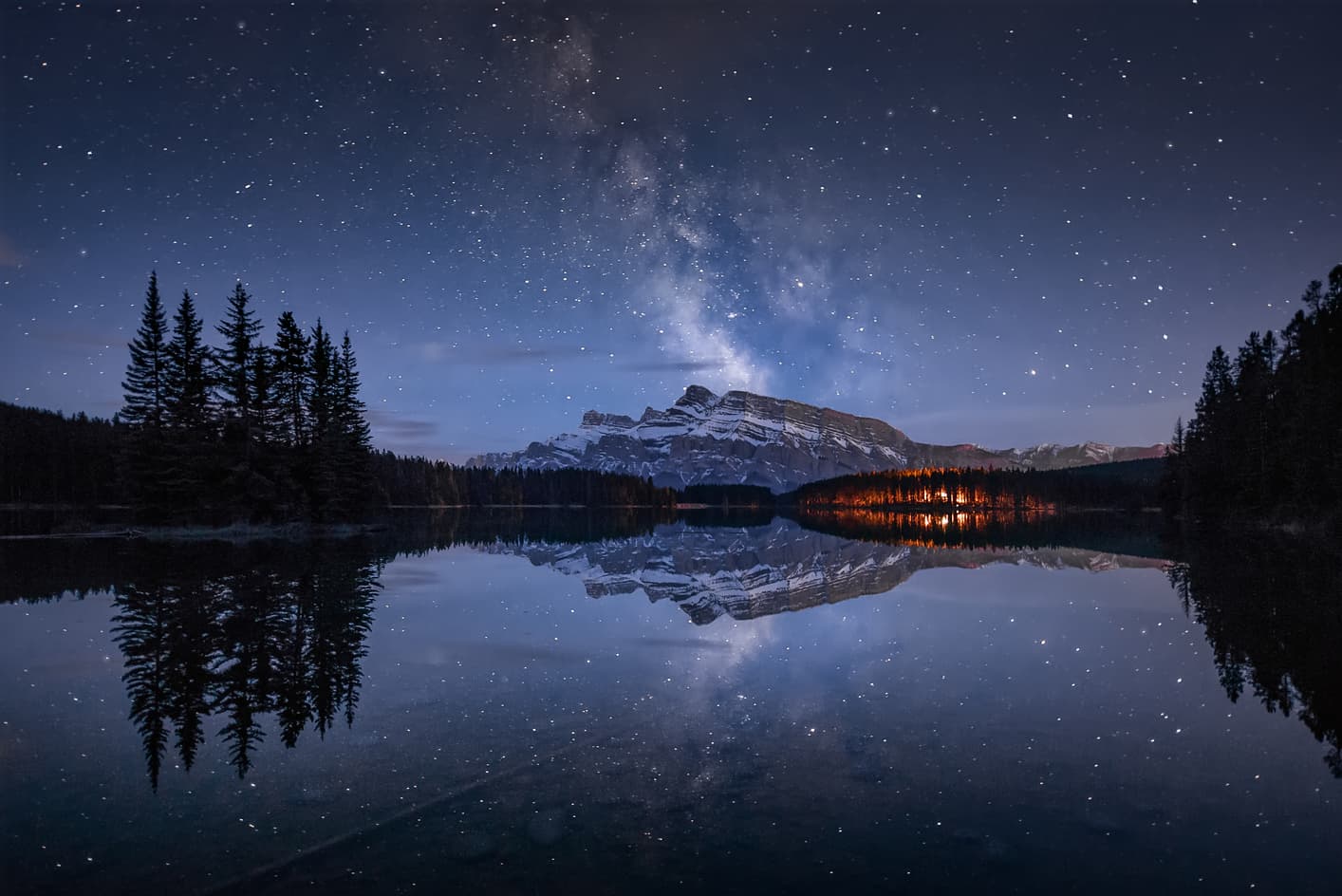
2. Banff National Park, Alberta – Dan Zafra
3. La Palma, spain
La Palma is part of the Spanish Canary Islands, and it’s one of the best places to see and photograph the Milky Way on our planet.
Astronomers from all over the world travel to La Palma for the same reason. The street lights are specially designed to avoid light pollution, and most of the inland peaks are located at an altitude over 5,000 ft.
The best place to photograph the Milky Way in La Palma is the “Roque de los Muchachos”. This is the highest peak on La Palma island, where you can see the Milky Way above the clouds at an altitude of almost 8,000 ft. Here you can also find one of the most important observatories in the world: the “Roque de los Muchachos observatory.“
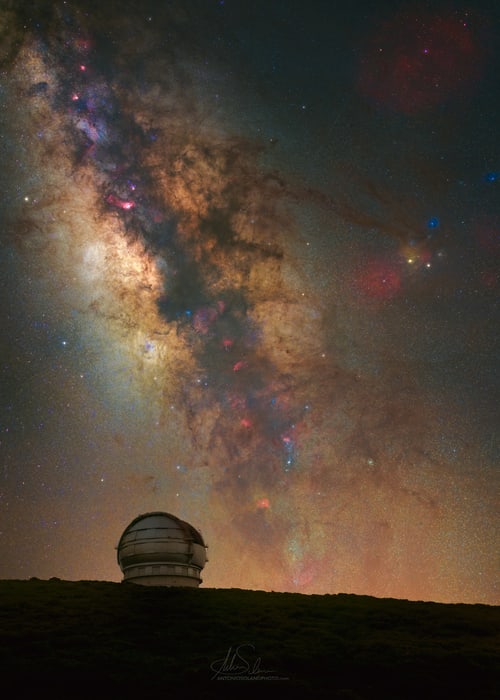
3. Roque de los Muchachos, La Palma – Antonio Solano
4. The Dolomites, ITaly
This old continent is one of the most light-polluted places on earth, so there aren’t many great places for stargazing or astrophotography. However, there are still places, like the Dolomites, where you can enjoy dark skies and see the Milky Way and the galactic center.
With just a few small villages and some peaks as high as 10,000 ft, the entire Dolomite mountain range is considered the best place to see the Milky Way on the European continent.
The best places to shoot the Milky Way in the Dolomites are around the “Tre Cime di Lavaredo”, “Cinque Torri”, and “Monte Pelmo”.
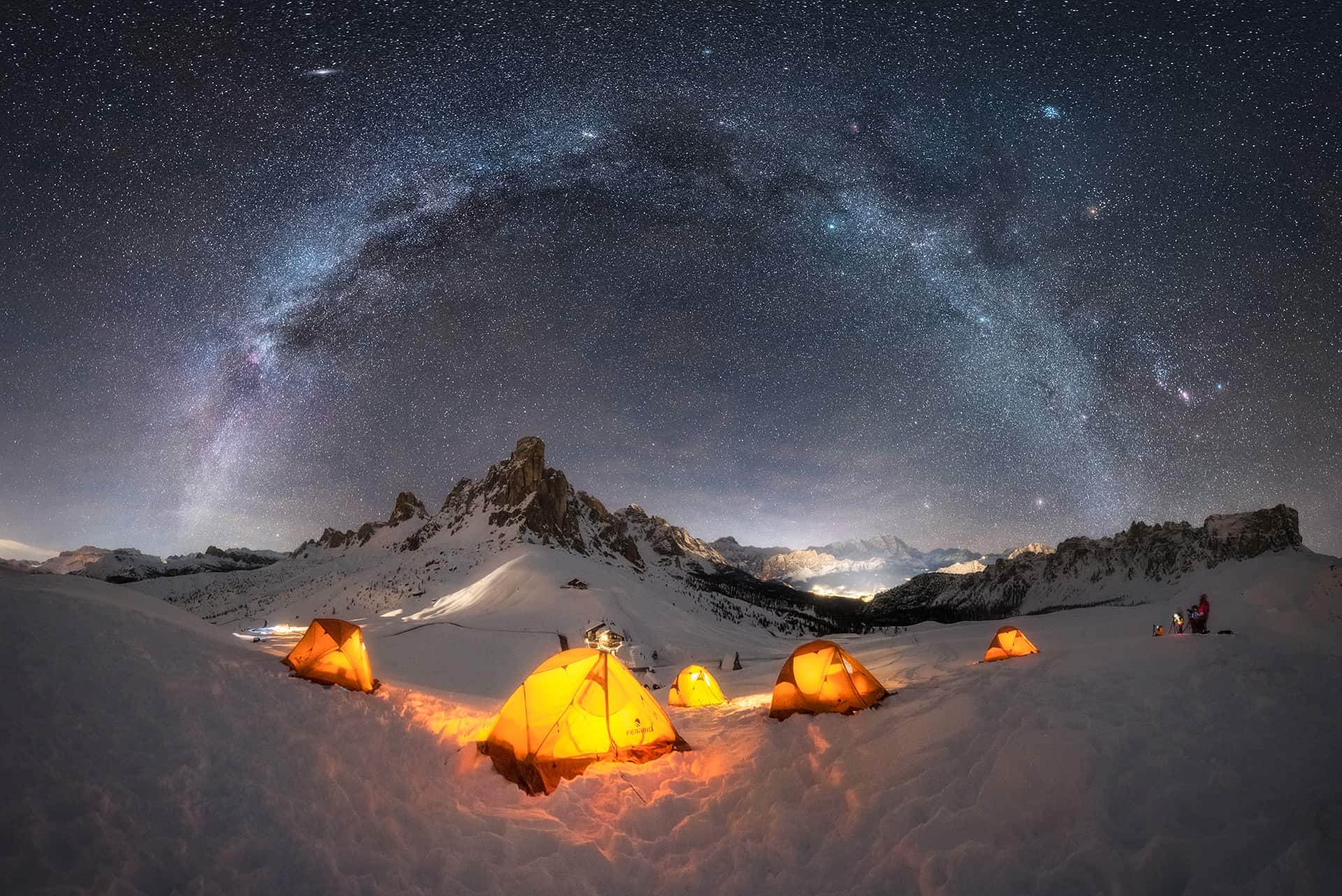
4. Dolomites, Italy – Giulio Cobianchi
5. The Sahara desert, Tunisia
The desert is one of the best places on Earth where you can see the Milky Way. Most of Earth’s deserts are isolated and sparsely-populated, so you can enjoy the silence and some of the best dark-skies.
There are many great deserts to see the Milky Way, but not many are as spectacular as the Sahara Desert. This massive desert is underpopulated and away from big epicenters of light pollution, and it’s widely known as one of the best places on Earth to see the Milky Way.
You can see the Milky Way in many different areas, but one of the best and most accessible is the Tunisian Sahara Desert.
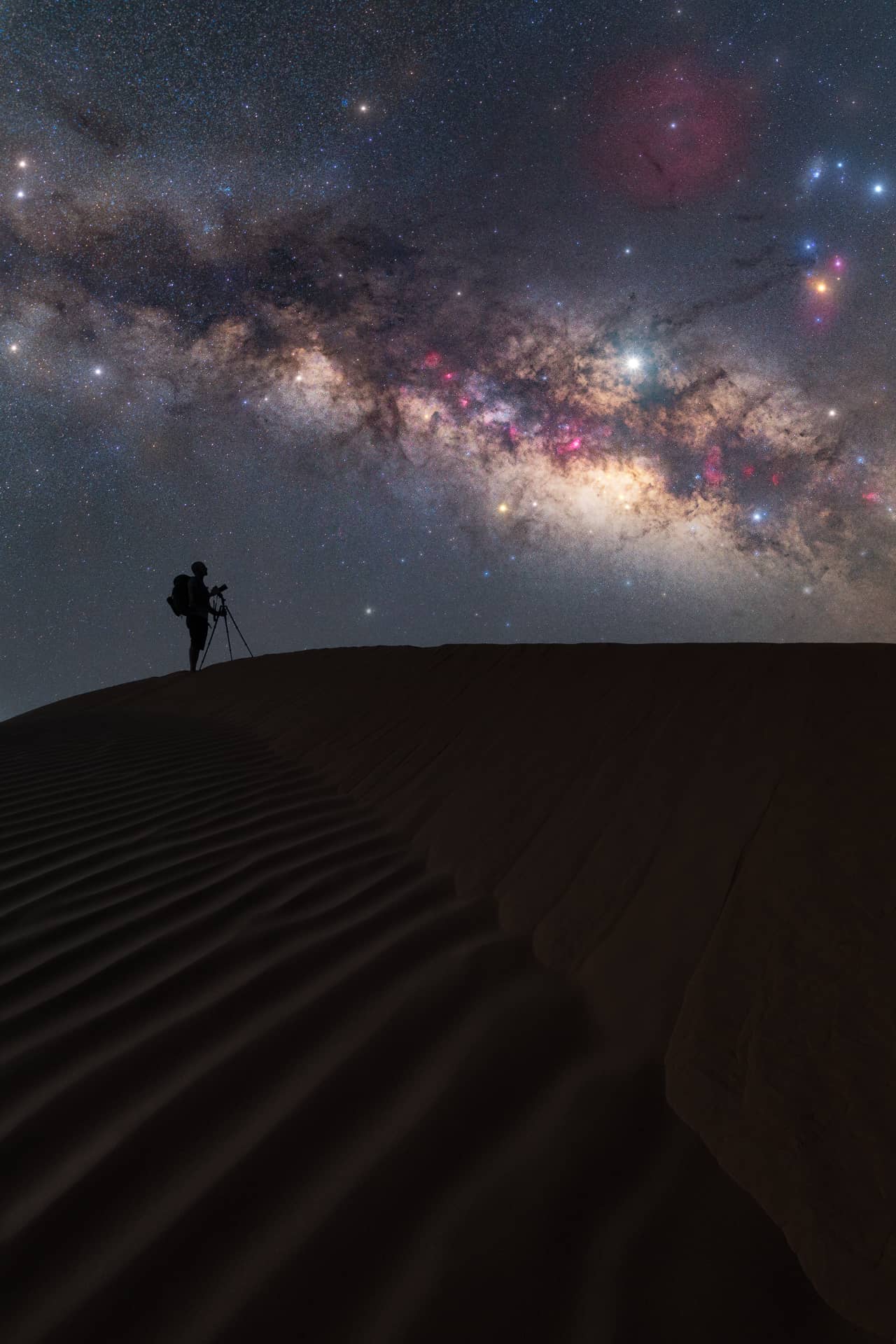
5. Tunisian Sahara Desert – Marco Carotenuto
6. Mount Bromo, indonesia
Humidity and light pollution are star-killers in many areas of Asia, but the continent also has great places to see the Milky Way at night.
Indonesia has some of the most remote (and yet accessible) places to see our galaxy, and it’s considered the best place to see the Milky Way in Asia.
An incredible place where you can photograph the Milky Way in Asia is Mount Bromo on Java island. This location features an area of active volcanoes at 7,500+ ft where you can see an otherworldly view of the Milky Way over volcanoes sending explosions of ash and smoke in the background.
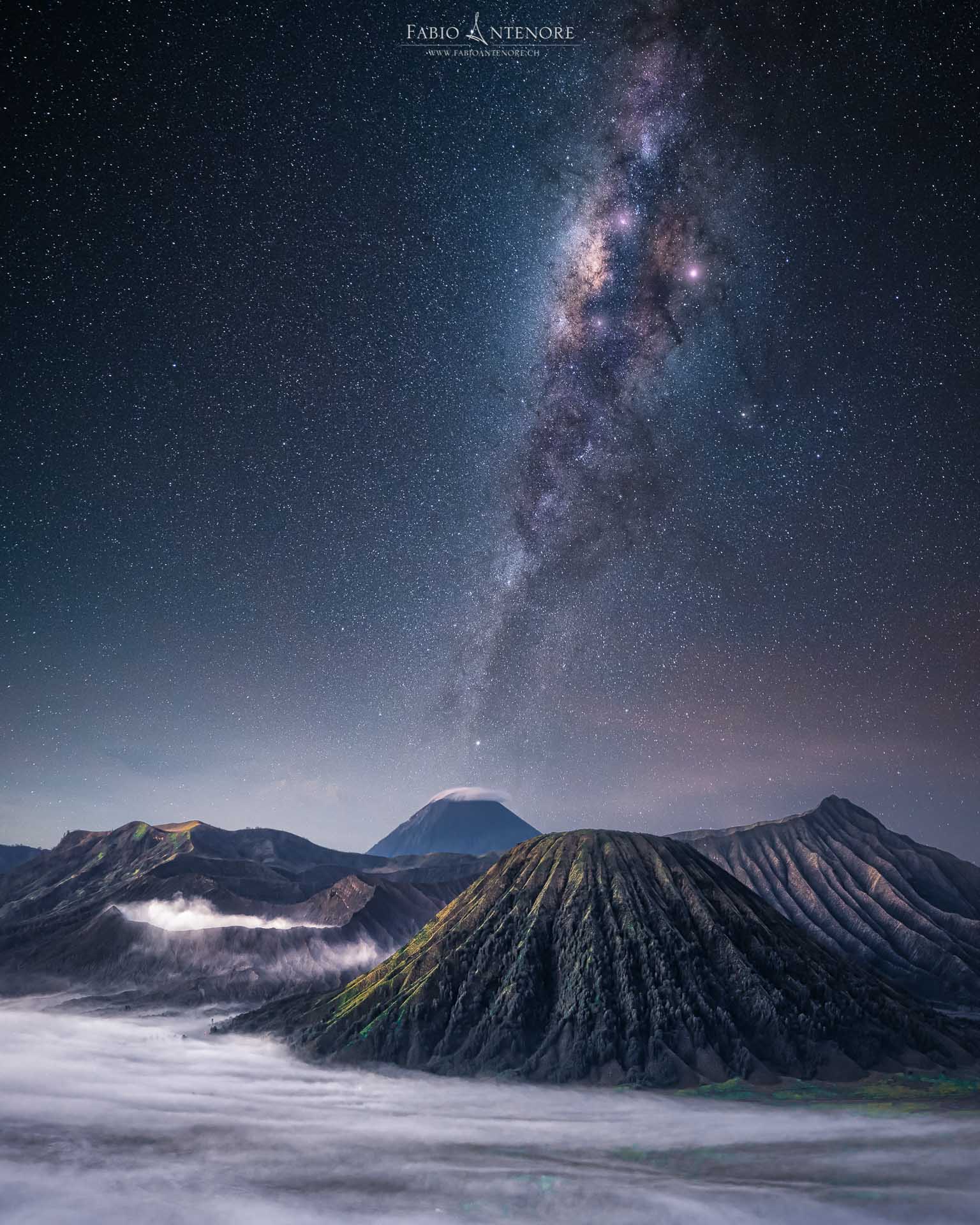
6. Mount Bromo, Java Island – Fabio Antenore
7. namib desert, Namibia
Talking again about deserts, Namibia offers the oldest desert on our planet and some of the clearest skies that you can find away from light pollution, making it the best place to see the Milky Way in Africa.
It’s becoming a more accessible and popular destination for astrophotography in recent years, not only for the dark skies but also for the long Milky Way season that you can enjoy at this latitude.
One of the top places to see the Milky Way here is the Namib desert, where you can photograph the Milky Way along with giant sand dunes, natural arches, and centennial dead trees.
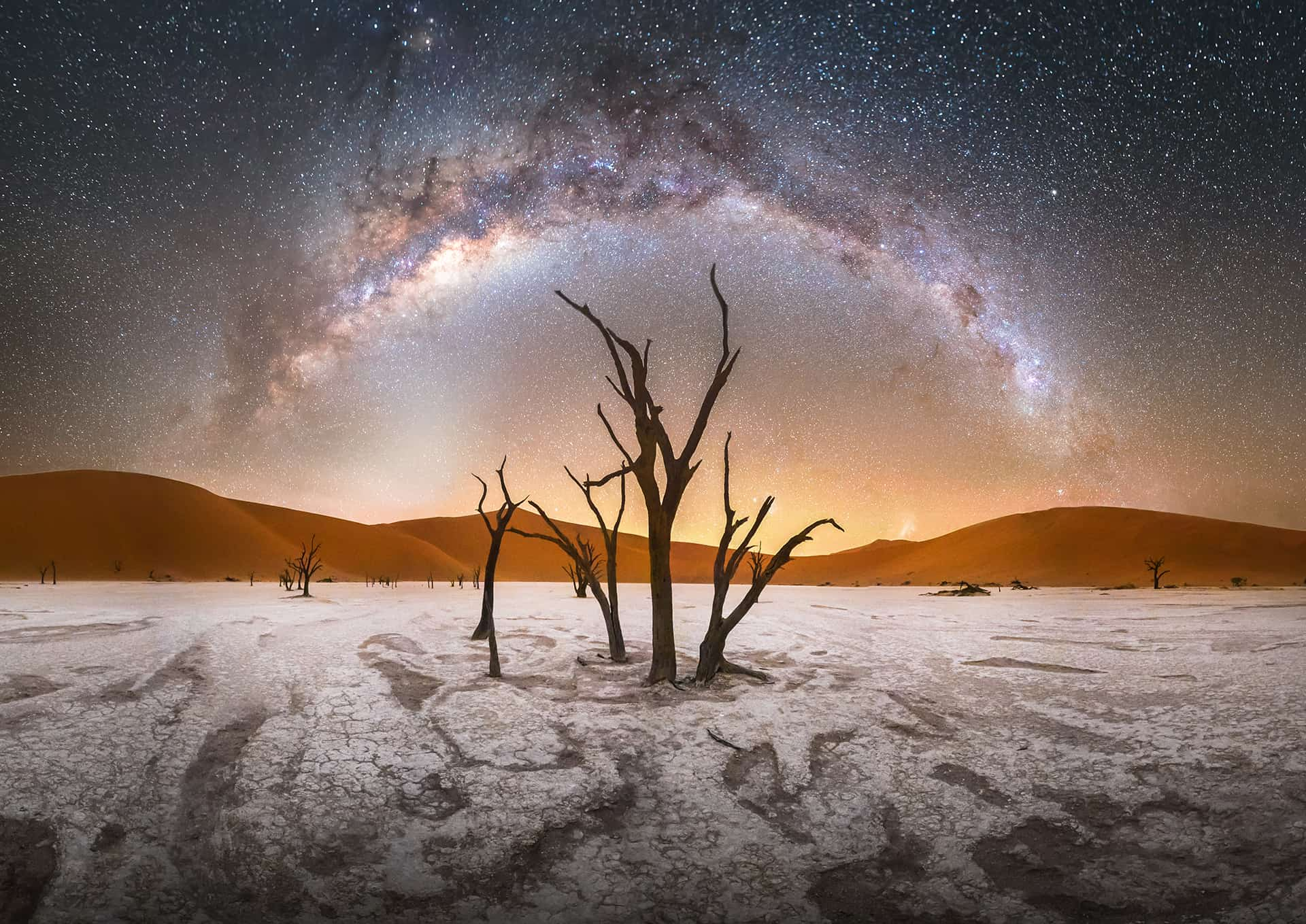
7. Namib Desert – Stefan Liebermann
8. Atacama Desert, chile
The Atacama Desert is not only the best place to see the Milky Way in America, in the entire Southern Hemisphere.
The conditions in this desert are very special. It’s the driest nonpolar desert in the world with an average of 330 clear nights per year. This also makes life almost non-existent, which means skies free of light pollution. On top of that, it’s located on a high plateau at almost 8,000 ft.
All this creates an astronomer’s paradise with numerous scientific observatories like “ALMA”, “SPACE”, or “Cerro Tololo”.
As you can see, the Chilean Atacama desert is the best place to see the Milky Way in the Southern Hemisphere for good reason.
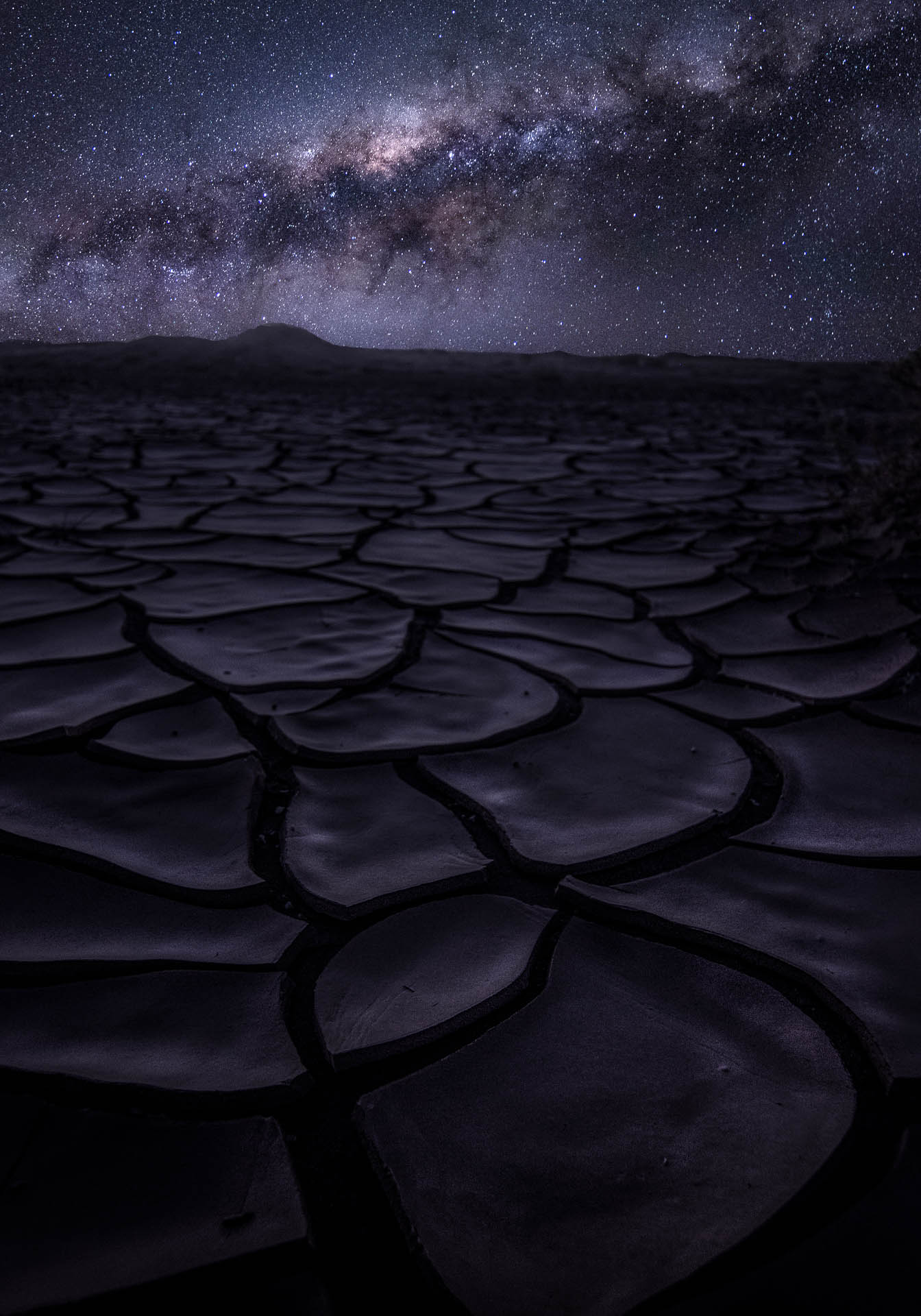
8. Atacama desert – Melanie Fritz
9. Wollemi, Australia
Australia is another one of the best places to see the Milky Way in the Southern Hemisphere with large extensions of underpopulated land.
The Australian outback is popular for its night skies, however, it’s not as accessible as other areas in the country.
One of the best places to see the Milky Way in Australia is Wollemi National Park, the wildest area in New South Wales. This park is in the Australian blue mountains, which are on the UNESCO World Heritage list.
Wollemi is known for clear skies and minimal light pollution, making it one of the favorite spots to photograph the Milky Way for Australian photographers.
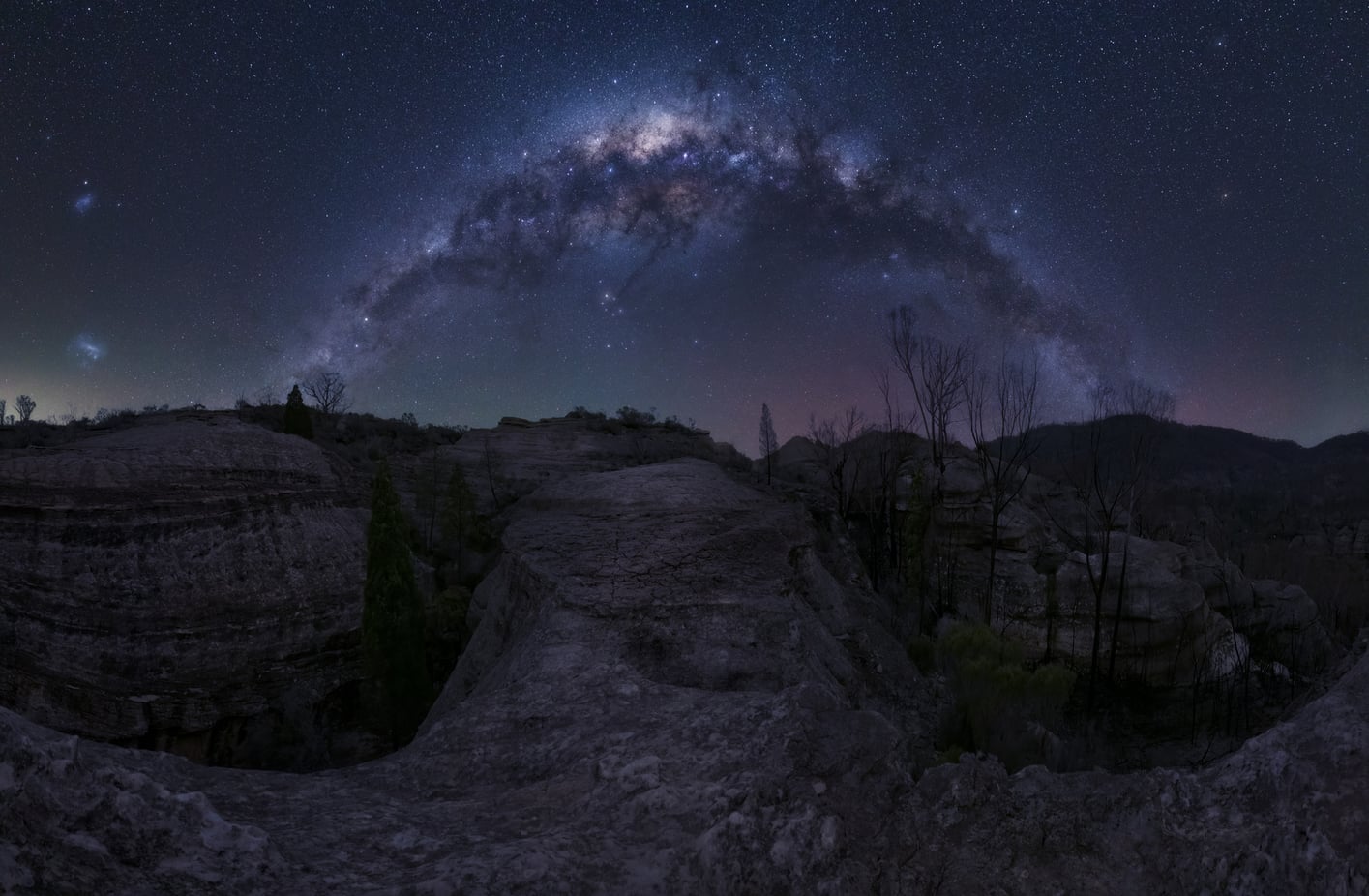
9. Wollemi National Park, Australia – Jose Luis Cantabrana
10. Tasman Glacier, New Zealand
Traveling further south, the islands of New Zealand have some of the best places to see the Milky Way in Oceania.
The South Island of New Zealand, in particular, is an area with a very low population density and features fjords, mountains, and scenery that make it perfect for seeing the Milky Way at night.
One of the best places to photograph the Milky Way in New Zealand is the Tasman Glacier; the largest glacier in New Zealand that flows from the Southern Alps.
This area is pretty accessible and, even though the glacier is retreating, the good news is that it’s still possible to enjoy super dark night skies at a high altitude in this fascinating place.
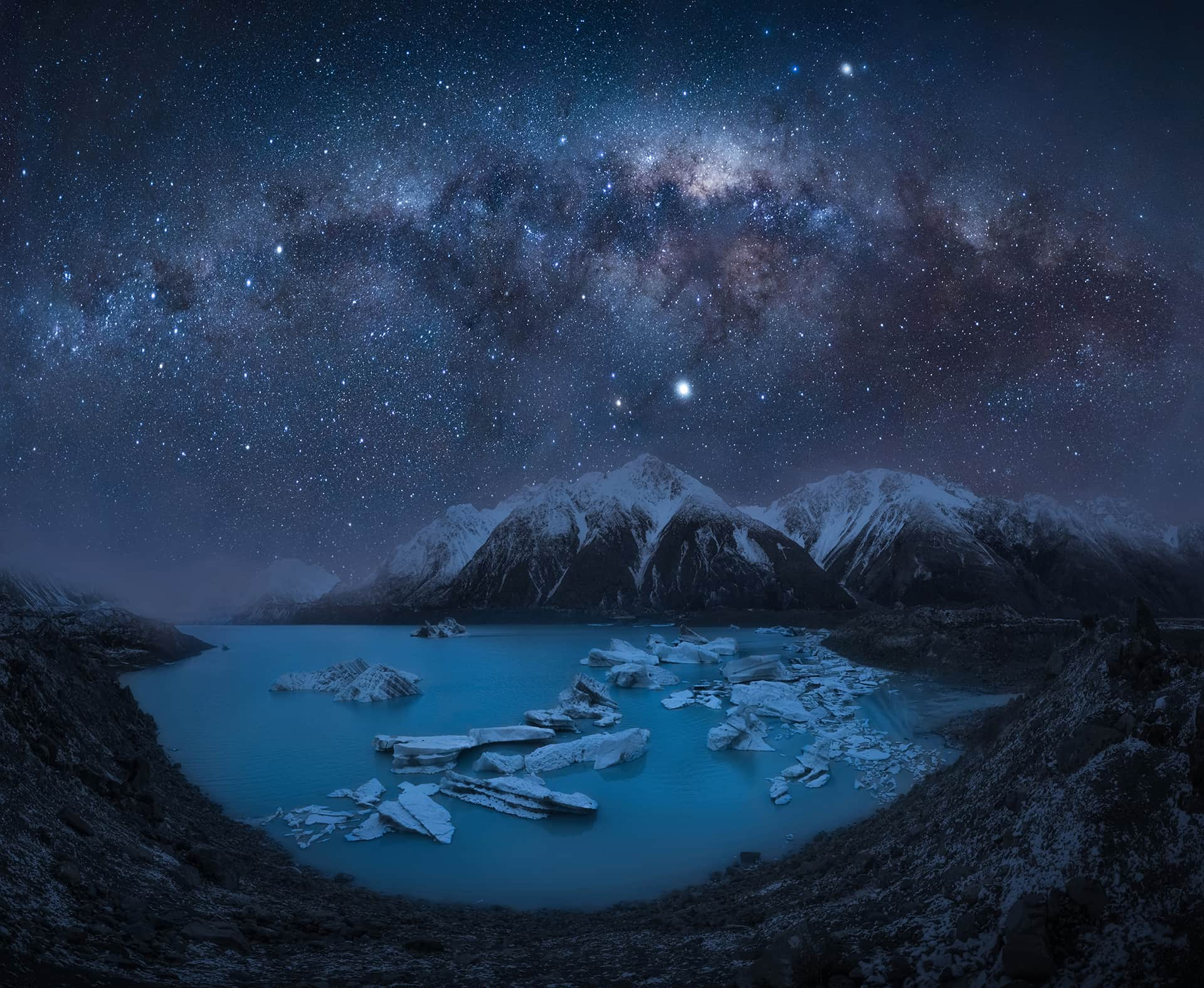
10. Tasman Glacier, New Zealand – Elena Pakhalyuk
If you are interested in learning and improving your photography while traveling to some of the best places to see the Milky Way in the world, I recommend checking our astrophotography workshops & tours!
Where can you see the Milky Way galaxy?
Speaking of local areas to see our galaxy, you might be wondering… Where can I see the Milky Way near me?
As we’ve seen throughout this article, the further from light pollution, the better to see the Milky Way. However, for different reasons, sometimes we can’t travel far, and that’s when you need to look into the best accessible places to see the Milly Way near you, away from light pollution.
There are two ways to assess the light pollution of a particular location:
Light Pollution map
The most popular and widely-used map to check where you can see the Milky Way is a light pollution map.
Using a light pollution map, you can quickly see the night sky’s brightness at a particular location and check whether seeing the Milky Way is visible or not.
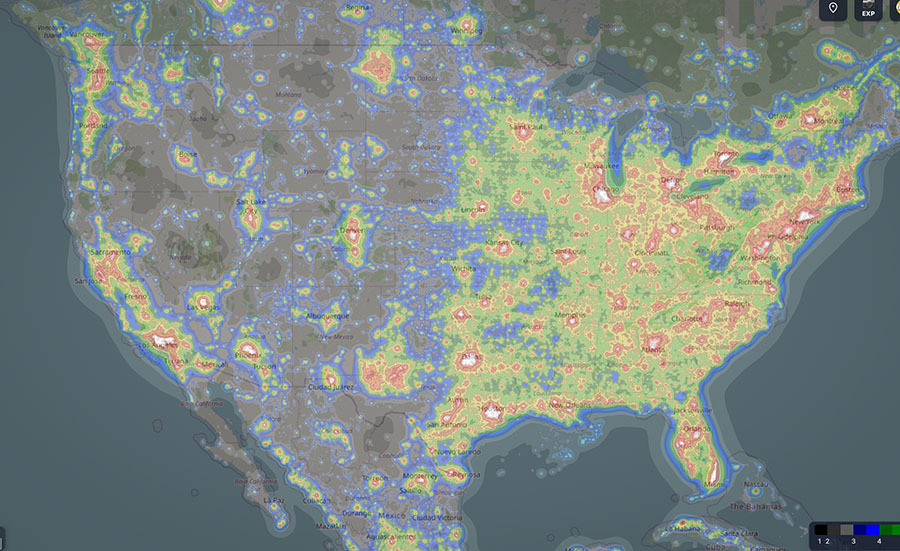
Where to see the Milky Way – Light Pollution map
All light pollution maps are very straightforward; you can see in different colors the light pollution level:
- Black/blue: Best places to see the Milky way
- Green: You can see the Milky Way, but this it’s fainter and lacks detail
- Yellow/orange: The Milky Way is weak and barely visible
- Red: The Milky Way is totally invisible
You can use different light pollution maps. This is my favorite since it also shows the altitude, another key factor in determining where you can see the Milky Way.
The Bortle scale
This system uses a nine-level scale to evaluate the night sky visibility of a certain place. Using this, you can check the Bortle level (known as “class”) in your location to give you an idea of which astronomical objects you can see.
The Bortle scale goes from Class 1 (excellent dark-sky site) to Class 9 (inner-city sky). Below you can see The Milky Way visibility according to the Bortle Class level:
- Class 1 – Class 4: You can see an impressive Milky Way.
- Class 5 – Class 6: The Milky Way becomes weaker.
- Class 7 – Class 9: The Milky Way is nearly or totally invisible.
You can check the Bortle class level at your location on the website Clearoutside.
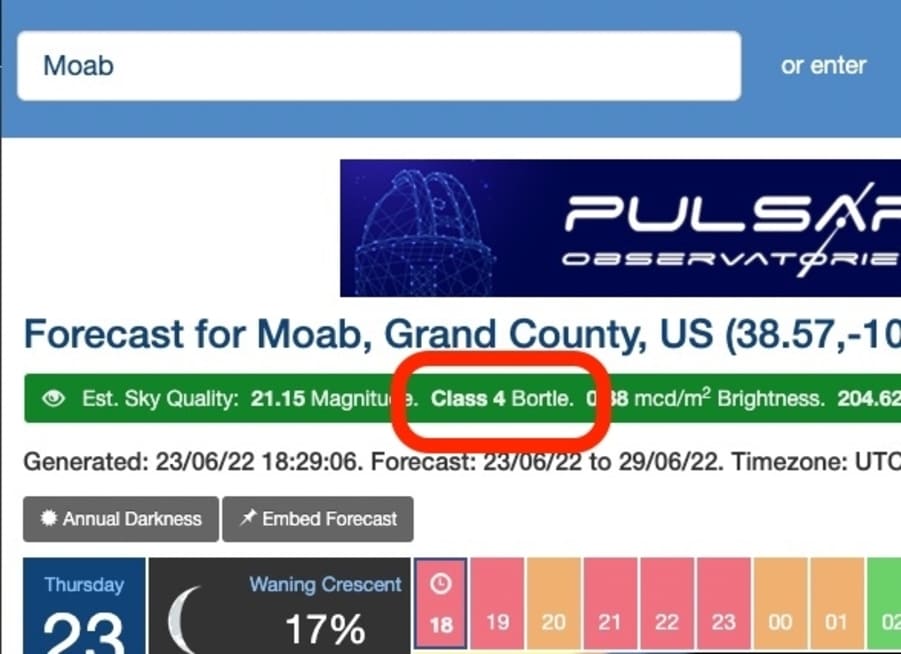
Botle Class level – Clear Outside
Other tips to find where you can see the Milky Way
From my experience, I’d also like to add a couple of tips to find the best locations to see and photograph the Milky Way:
- Don’t underestimate the elevation. Even in places that might seem affected by light pollution, when you’re at a high elevation, your night sky visibility can be great since you’ll be above the lower areas of the atmosphere that contain the most light pollution. A good example is a village in a mountain valley.
- Check the direction of the Milky Way. Even if the spot looks dark on the light pollution map, if the Milky Way is moving in a direction where there’s a heavily-polluted area, the visibility will be highly affected. This is especially important when planning Milky Way panoramas.
You can check the direction of the Milky Way in different areas on Earth in our article about the best time to see the Milky Way.
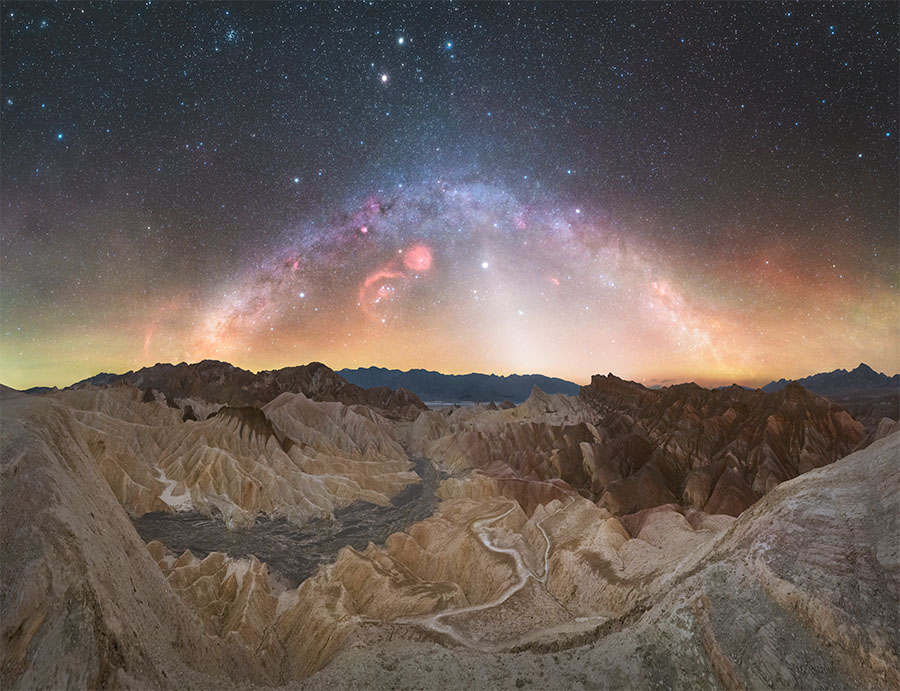
Check the elevation and the direction of the Milky Way
Conclusion
Where you can see the Milky Way depends on one key factor: light pollution. The further you move from heavy-polluted areas, the greater chances of success you’ll have to see our galaxy. Altitude plays another important role in Milky Way visibility, and the higher you can go, the further you can be from low clouds and light pollution.
As we’ve seen in this article with the best places to see the Milky Way, there are many great places around the world to see our galaxy; from mountains and high plateaus to deserts and unpopulated areas where seeing and shooting the Milky Way is still possible.
If your goal in finding the best places to see the Milky Way near you is to take images of our galaxy, I highly recommend taking a look at my Milky Way photography guide and our 2026 Milky Way calendars where you’ll see, at a glance, the best days to see it in your location.
GET THE CALENDAR WITH THE BEST DATES TO PHOTOGRAPH THE MILKY WAY IN 2026
You'll also receive our PDF guide to photographing the Milky Way!

Happy Captures and clear skies!
P.S. You can check more incredible places to see the Milky Way on the map provided by the International Dark-Sky Association.
